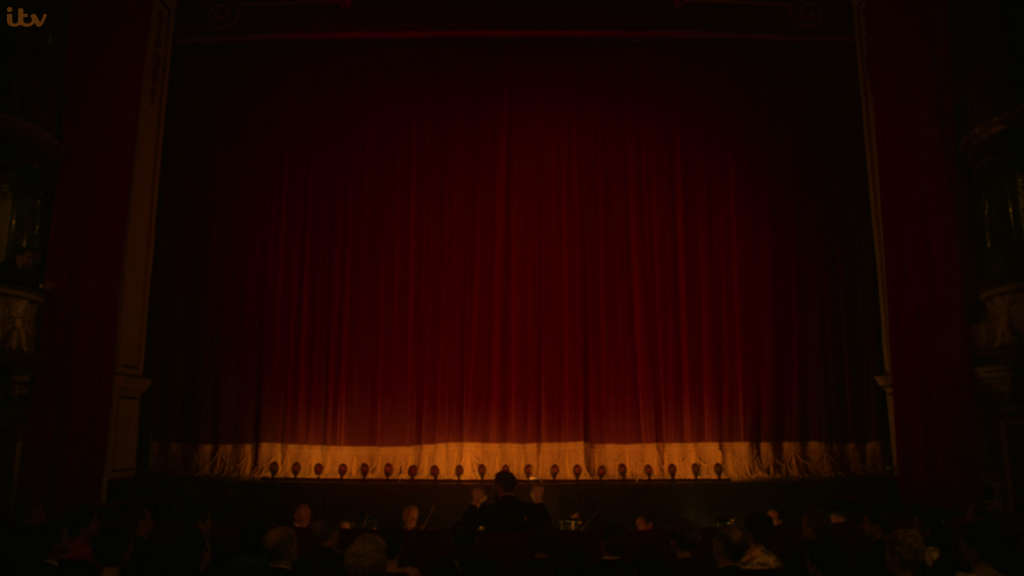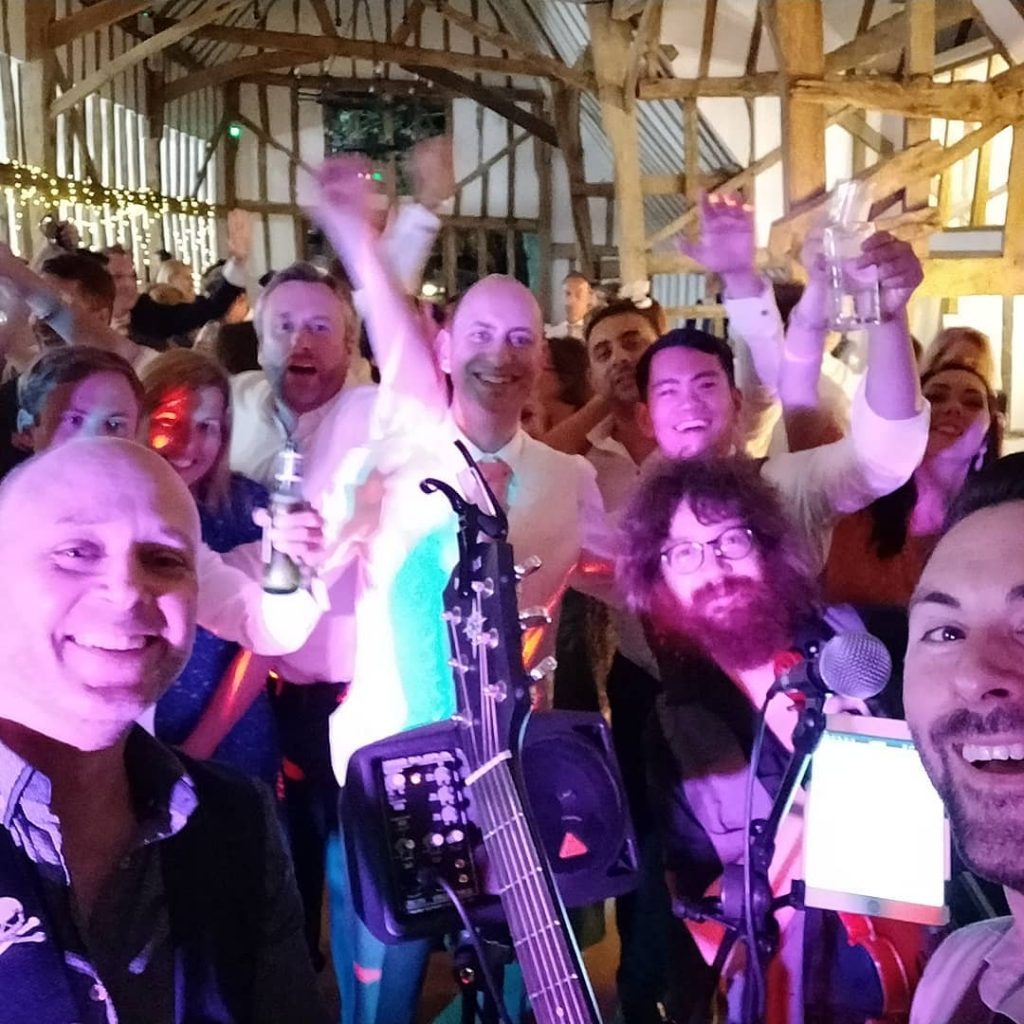This is a still from Endeavour, season 7, episode 3; broadcast Sunday evening (23 Feb) and currently still available on-demand from ITV’s website:

Now you might have to just take my word for it, but the head behind the stand light just to your right of the conductor is mine.
So I’m taking this (and all the unused or not-including-me footage from the same day’s shooting) as my TV acting début, as well as my first paid job on baroque viola. Follow-ups to both would be welcomed!
Certain employees of London Metropolitan Orchestra spent a day back in 2019 at a theatre in Wimbledon pretending to be pit musicians for a baroque opera in 1970 Venice. Fun backstage fact – the series had commissioned a (compressed but still substantial) mock-baroque opera from soundtrack composer Matthew Crowe; not only did he conduct a different lineup of the same orchestra in a period-instrument, A415 recording of the ‘entire’ work, but also conducted the onstage cast and pit mimers in the filmed scenes (with real sheet music used in the recording, as well as excellent white gloves on his part, black tie on ours and baroque instruments including my viola … ).
In many ways, a lot of this was a day of waiting around being treated well – I mean, not star well, but free tea and coffee, fruit and biscuits, hair and makeup (quite some time spent making my hair even more Seventies with definition and regularity), and the breaks laid down by Equity rules.
Things you might not think of:
Even for those actually in focus and acting, TV and film acting is an incredibly repetitive business. Most desirable camera angles put the camera in shot in most other angles. So you don’t have to just get the stretch from one cut to another right once. You have to get it right, and the same right, as many times as the director thinks they might possibly want camera angles, while those successive angles are taken. And the shots will largely be ordered by what is in the same setting and involves minimal work to transition between. Much less sense of progression and situation than stage acting, where at least you get to go through everything in order without repetitions in performances.
Money is an obvious factor even to those with no involvement in the production-business side. They had one day’s occupation of the theatre: get everything done, no matter how late we finish, and don’t take chances, because we can’t come back and do more if there’s a hole at editing stage. Within that, someone had had the task of estimating how long shooting with the extras (including musicians) might take at a minimum; which was the number of hours stated on the contract and paid full rate. But no one really expected it to be quite that quick; in the end the musicians did an extra 2 hours paid at the higher overtime rate in half-hourly increments. (I should point out that once you are working at this sort of level, the rates and contractual terms have been tightly negotiated by industry bodies and unions so the only flexibility the producers would have that they stand any chance of getting away is to pay over the odds for some inscrutable reason … ) It cost more than if they had contracted us for that long to start with; but if they had finished in less than contracted time, they would still have had to pay us for all of it, and there’s an unsurprising reluctance to pay people literally to do nothing, not even to hang around waiting to work (I was tickled to find a separate rate and item for costume/hair/makeup/general prep before being ready to be called for camera-roll!).
Everyone knows a lot is shot that isn’t used in the final edit, but I don’t think most of us (me at least) realised quite how much doesn’t make it from the set to the public. Someone told me when I was a teenager that there’s 24 hours of unused footage (not even used in director’s cuts, alternate releases etc.) from The Wicker Man used as construction landfill under a bypass somewhere in northern England; I’m now only surprised there isn’t more, although a lot of it is probably one or other of the cast coming out with a perfectly reasonable line, just one phrased differently to the take on camera D … and so on.
In the meantime, I got my day earning decent money for hanging around and playing some viola on a TV set; and my attention needs to switch as ever to the next gig. Well, I know what the next gig is, but the next on-screen gig or the next baroque viola gig would be nice. So let me know what’s going …
